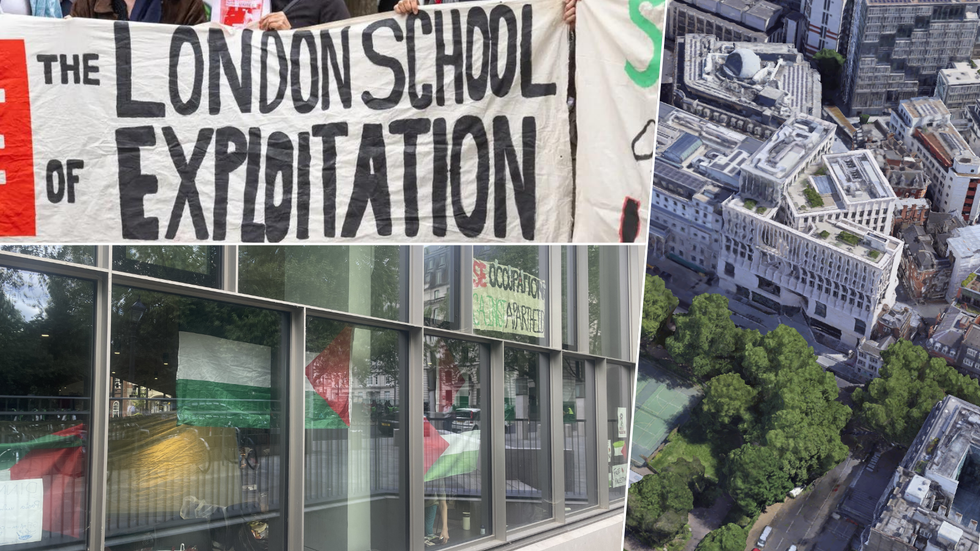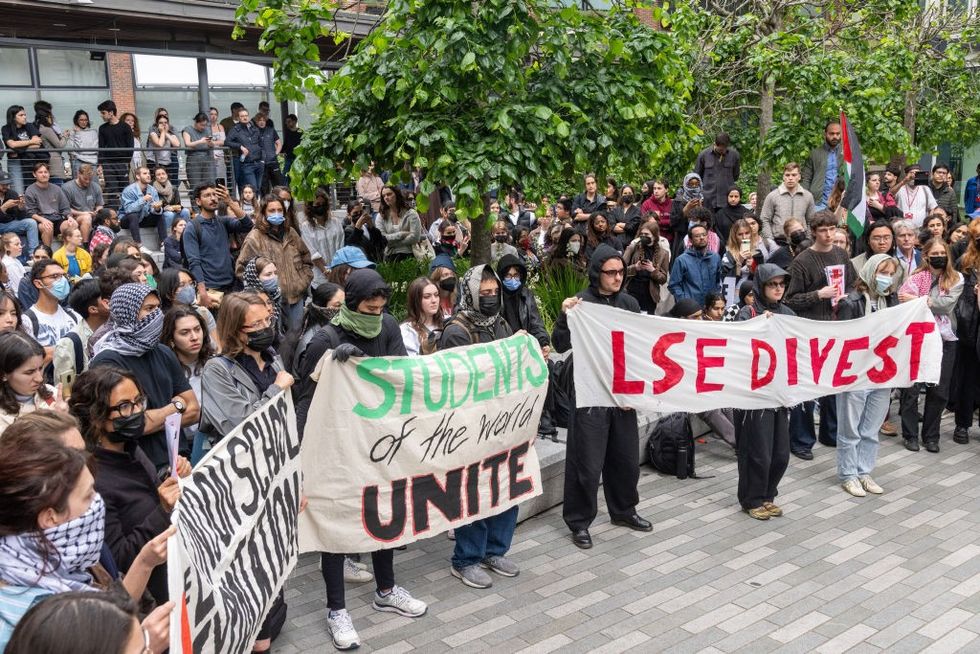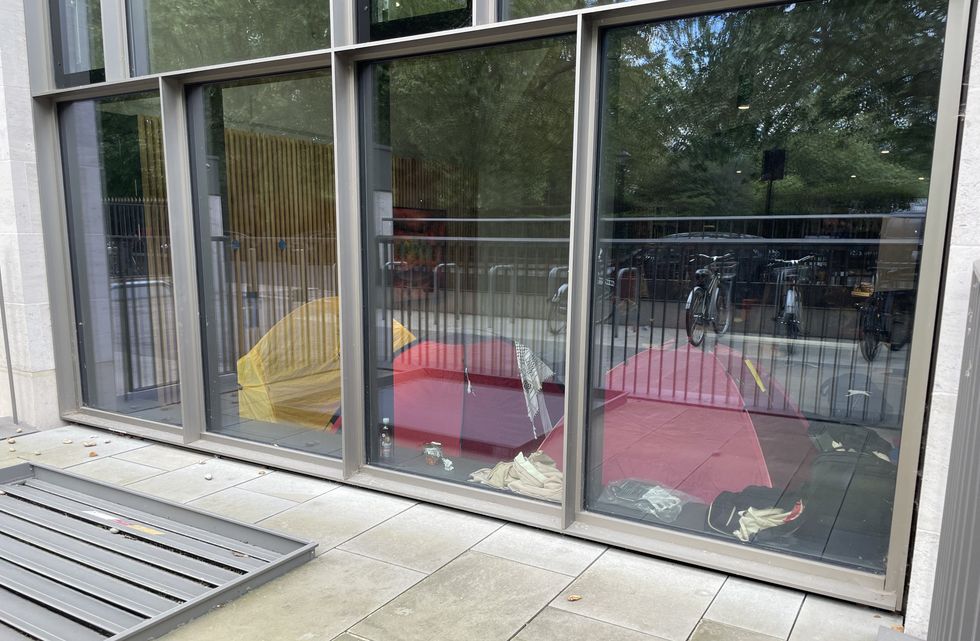Protesters have been staging the sit-in at the university's Marshall building (pictured right)
Getty/Google
The protesting students have been in place since May 14 after the release of a report which had made damning allegations about LSE's links to Israel
Don't Miss
Most Read
Trending on GB News
A group of pro-Palestine students at the London School of Economics (LSE) have lost the first stage of an ongoing legal battle over a protest encampment they set up inside a building at the university.
The demonstrators had started the sit-in back in May at LSE's Marshall Building - prompting the institution to pursue legal routes to turf them out at the start of this month.
LSE had sought a court order to force the students to disband the encampment - and now, District Judge Kevin Moses has issued an interim possession order requiring the group to leave the premises within 24 hours once it is served.
Moses said the students "are aware of the difficulties they are causing the claimants [and] other users of the premises" a the hearing at Central London County Court on Friday.

Protesters have been staging the sit-in at the university's Marshall building (pictured right)
PA/Getty/Google
He added that, while the students had the right to protest, "what it does not do is give parties an unfettered right to occupy other parties' premises with a view to protesting, particularly when they are required to leave".
The protesting students had established the encampment on May 14 in the wake of a report by the LSE Students' Union's Palestine Society which had made damning allegations about the university's links to Israel.
The report, titled "Assets in Apartheid", claims that LSE has invested £89 million in 137 companies involved in the ongoing conflict in Gaza - as well as fossil fuels, the arms industry, or nuclear weapons production.
The students - dozens of whom have been effectively living inside the university building since May - released a series of demands of their university in the wake of the report, and have vowed to remain in place until they are met.
READ MORE AS PRO-PALESTINE PROTESTS SWEEP BRITAIN:
- Pro-Palestine demonstrations outside London university 'complicit in Israel's crimes and genocide'
- Palestine activists arrested after alleged plot to 'shut down' London Stock Exchange in bid to wreak havoc
- Islamists and the far-left: GB News goes inside the 'unholy alliance' as protests rock Britain's streets

Students had called on LSE to "divest" from Israel in May
GettyBut LSE has previously said it would carefully consider the report and hoped for "peaceful dialogue" with the demonstrating students.
Riccardo Calzavara, representing the university in court, said the students had "stormed the building" and "barricaded" themselves inside.
Calzavara added: "They may have had permission to enter the building, as they appear to be students, but they did not have permission to enter the building in order to encamp on part of it, nor have they ever had permission to remain there."
In written submissions, he said that the encampment posed an "intolerable fire risk" and presented "considerable cost, and disruption, to the claimant and other users of the Marshall Building".
He added that LSE did not seek to evict the students because of their protest, but "because they have taken over a building of ours unlawfully".
He also acknowledged that while there was "nothing to prevent" the students from returning to the building once the court order expired, they could not "occupy it to the exclusion of others".

The encampment can be seen from outside the Marshall Building
PA
While Daniel Grutters, representing three of the students, said members of the encampment were willing to make any necessary adjustments to the camp in response to safety concerns - except leaving - and claimed they were not blocking other people from accessing the building.
He said: "This, in its essence, is an attempt by all of the defendants to educate the LSE about its implicity in what it calls crimes against humanity, genocide and apartheid.
"To the extent that the claimant is relying on health and safety risks, the defendants are willing to comply with any and all health and safety adjustments and recommendations made.
"Seeking to remove them, only to allow them to re-enter but for spending the night, is not a decision that is maintainable."
A further hearing in the case will be held at a later date.








